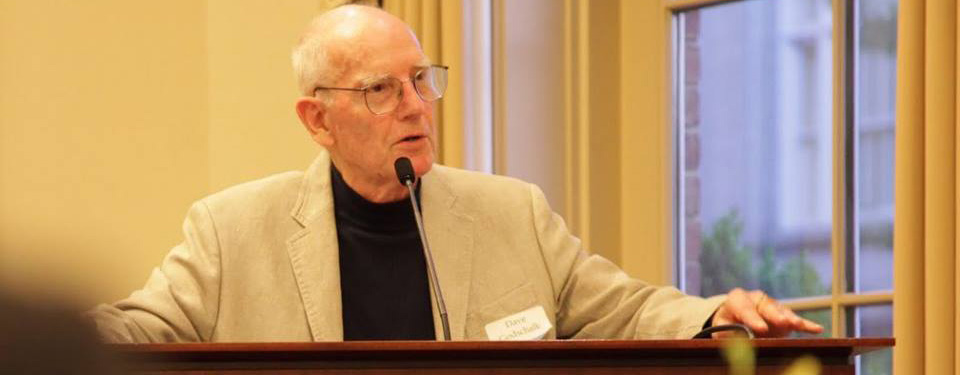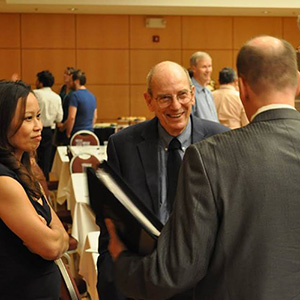 Photo courtesy of UNC Department of City and Regional Planning.
Photo courtesy of UNC Department of City and Regional Planning.
The field of hazards and disasters has lost a number of its trailblazers recently, and we're sorry to note yet another. David Godschalk, an urban planner and early champion of hazards mitigation, passed away on January 27. He was 86.
Godschalk had an illustrious career as a planner and an academic, leading a push for what would eventually become known as community resilience by finding planning solutions to extremes such as flooding and sea level rise. He was especially known for his ability to bridge the divide between academic research and practice and contributed to the education and professional growth of many of today's top planners and mitigation specialists.
"The planning field is full of people with their stories of mentoring by David Godschalk because it may well have been the aspect of his job that he enjoyed most," wrote former APA Hazards Planning Center manager James Schwab in a tribute. "He took pleasure in the growth and success of those whose careers he affected."
 Photo courtesy of UNC Department of City and Regional Planning.
Photo courtesy of UNC Department of City and Regional Planning.
Godschalk spent nearly 40 years with the City and Regional Planning department at the University of North Carolina Chapel Hill, where he retired as the Stephen Baxter Professor Emeritus. He contributed significantly to the Coastal Resilience Center as a member of the advisory board, and he was a fellow of the American Institute of Certified Planners.
The Natural Hazards Center was also fortunate to call Godschalk a supporter. For many years he was a frequent attendee and contributor to the Natural Hazards Workshop program. In 2002, he convened one of the early meetings of Hazards Center Directors at the Workshop, an important tradition that endures. He also designed several meaningful Workshop sessions, including one on best practices in recovery in 2013.
Although he was a gifted academician, Godschalk was not content to let his scholarship languish in books and plans. He applied his expertise to the communities of which he was a part, contributing to planning efforts such as the Chapel Hill Town Plan, UNC campus planning, and even to the retirement community where he finally settled.
His tireless efforts have led to a large body of work that include influential ideas, practice frameworks, and texts. Not the least of which was his 2017 memoir, "Searching for the Sweet Spot", in which Godschalk gives us a glimpse into what drove him throughout his notable career.
"Design has been an abiding thread in my life," he wrote. "However, I have learned that you do not always find the sweet spot of everything…by design. The process is often more complicated than that."
We know we join the other members of our hazards and disaster community in mourning the loss of David Godschalk, and in celebrating his tremendous legacy. By design or by complicated process, he left our world a sweeter—and a safer—spot.
Jolie Breeden is the lead editor and science communicator for Natural Hazards Center publications. She writes and edits for Research Counts; the Quick Response, Mitigation Matters, Public Health, and Weather Ready Research Award report series; as well as for special projects and publications. Breeden graduated summa cum laude from the University of Colorado Boulder with a bachelor’s degree in journalism.